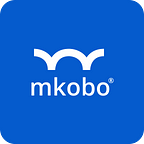The shift to a cashless system has been challenging, especially in Nigeria where cash transactions are prevalent.
As of February 10, 2023, Nigeria’s Central Bank (CBN) officially discontinued the use of old 200, 500, and 1,000 naira notes, causing widespread panic and anxiety among citizens.
Despite efforts made to introduce the new notes and the supreme court judgment which extends the use of old naira notes till December 2023, a shortage of currency notes has forced numerous Nigerians to switch to a cashless way of life.
Knowing how to navigate a cashless economy will greatly ease the stress on numerous Nigerians. In this article, we will provide some tips to make the transition to a cashless system less hectic and safe for you.
Use digital payment methods
What’s a cashless economy without digital payment systems?
Advancements in fintech now means you have a plethora of digital payment channels at your fingertips. They include mobile banking apps, internet banking, QR payment, and USSD codes among others. More fintech products like Mkobobank are being launched to make payments and digital banking a better experience for everyone.
Ensure you have a good number of options at your disposal. However, let it be in such a way you can still manage your spending habits.
These payment methods are secure, convenient, and easy to use. With just a few taps on your smartphone, you can transfer funds, pay bills, and make purchases.
Keep track of your transactions
Imagine you have three legacy bank apps, three “fintech” apps, four ATM cards, and USSD codes attached to different banks — it becomes difficult to track what’s happening.
This is even more difficult when you’re forced to pay for goods/services using any of the above options when the first one fails. It becomes essential to be able to monitor your spending. Failure to do this could lead to issues down the road.
For example, you may not quickly detect when fraud happens in your bank accounts.
One way to track your spending is by checking your bank statements regularly or setting up transaction alerts either via SMS or email. You can also limit online spending to only select accounts. This way, you can easily detect any discrepancies or unauthorized transactions and report them to your bank.
Plan ahead
I think the major expense point for daily life is public transportation and small-scale purchases and services.
If you can plan to keep cash for these two major areas, it’s easier to go cashless. So avoid spending cash at the supermarket where they have POS terminals, and save it for when you visit Iya Funke at the local restaurant.
I expect more SMEs to get on the cashless train and adopt payment solutions that don’t require cash.
In any case, you want to plan your daily spending to know how much cash you may need for that day. This way, you can avoid the risk of running out of cash when the need arises.
Be Security Conscious
A downside of digital payment systems is exposure to online criminal activity. Criminal actors have become more sophisticated so you have to take your online safety more seriously.
Protect your personal information and bank details using strong passwords, avoid public Wi-Fi networks, and be more careful who you share your banking information with.
One trusted piece of advice is to have a separate debit card for online spending. This card will only have money earmarked for daily/weekly spending so in the event it gets compromised, your main account is not affected.
Also, avoid or take proper precautions when using your ATM cards at untrusted POS merchants and report any suspected fraudulent activities to your bank immediately.
Take Advantage of Financial Tools
Many financial institutions like Mkobo bank offer digital tools and apps to help you manage your finances more effectively.
For instance, the Mkobo bank app will be launching Mkolo Savings and Personal Finance Manager feature soon. This features will enable you to automated savings, track your spending easily, and earn up to 15% interest on savings to help you achieve your financial goals.
Other tools help you track your monthly spending which is great for monitoring how you spend using digital payment systems.
The cashless economy will only get more ingrained in Nigeria going forward. Learning how to navigate a cashless system will make life easier for you. This article has shared some handy tips you can use to achieve this.
Going cashless requires careful planning and preparedness. You also have to be security-conscious and take advantage of financial tools and resources on the Mkobo bank app.
